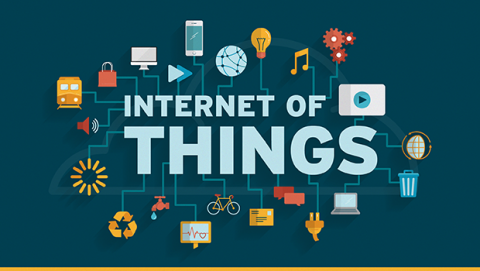
The term Internet of Things or IoT has been in the digital landscape for several years. Recent technological advancements have made it more relevant.
60% of the world's population is connected to the internet in some way. The trend continues to rise, with an increasing number of smart devices capable of connecting to the network.
{jistoc} $title={Table of Contents}
What is the Internet of Things/IoT
Internet of Things consists of everyday household devices that can connect to the Internet.
Devices capable of making this connection are often called “Smart” or “intelligent”. The most obvious case is smartphones, but Smart TVs are also very common in homes.
The Internet of Things allows communication between the different devices in your home and your digital devices. The IoT can also be applied to other areas besides the domestic one. In fact, it is now being used in fields such as medicine and industry.
How the IoT works
The Internet of Things works by utilizing a programming instruction where each argument command can produce an interaction between devices that are connected to each other automatically without human intervention.
Even over long distances, the internet can be a link between the two device interactions. Meanwhile, humans only serve as direct regulators and supervisors of the work of these devices.
The biggest challenge in the world of the Internet of Things is building its own communication network, which is a very complex network and requires a strict security system. In addition, expensive operational costs are often the cause of failures that lead to production failures.
Internet of Things for companies
This technology isn't just useful for making the home more comfortable and efficient. It is also applicable in the business sector, and there are several success stories where IoT technology has been applied in various business areas.
The Internet of Things represents a vast improvement in industrial machinery and devices and allows better relationships with customers, suppliers and partners.
It is necessary to consider that the volume of data generated by devices with Internet of Things in the business environment is much higher than what can be generated at home, necessitating the need for a good Data Warehouse infrastructure to manage Big Data.
Likewise, ensuring secure IoT systems against data theft and other cyber attacks is a key aspect of the business Internet of Things.
- Internet of Things in Industry: This technology can be used to perform predictive maintenance on machinery. In other words, the machine itself can detect the state of its parts using sensors and later notify when changes or repairs are required.
- Internet of Things in Agriculture: Currently, humidity sensors are widely used to automate irrigation systems and make the use of water and energy in agriculture much more efficient.
- Internet of Things in Transport and Logistics: It is possible to track shipping containers and their movements through the use of IoT. In this way, checking the situation and the status of the shipments is much more specific. The sensors of the facilities are no longer necessary because it is the containers and packages themselves that send the information continuously.
- Internet of Things in Medicine: The Internet of Things can be added to medical machineries such as nebulizers, X-ray machines, defibrillators, and even wheelchairs. These connected devices keep patients and doctors in contact, always with up-to-date information on the state of health and facilitate monitoring even once the patient has returned home.
- Internet of Things in the Retail sector: Using IoT technology, physical stores will be able to offer different spaces, more intended for entertainment than for shopping, and also obtain a large amount of data about customers and their needs, allowing them to provide better products and customer service.
Doubts about the Internet of Things
Cybersecurity is a very current concern, and the Internet of Things, like every new step in technological progress, causes reluctance in many people.
- Isn't it dangerous that all our information is in the cloud?
- How do we guarantee privacy if each of the devices in the house stores information about us and our habits?
- Will companies be able to access our private information?
These are all the common doubts about the Internet of Things. Of course, a fully connected environment will require specific legislation that guarantees users' right to privacy and companies must offer maximum security for data in the cloud.
Currently, guaranteeing the security and privacy of the information collected by smart devices is already one of the main concerns of companies that offer devices with the Internet of Things.
Like everything else, the Internet of Things is a technology that has its advantages and disadvantages. However, it has undeniably great utility in many fields and opens the door to a more comfortable and automated life.


Post a Comment